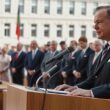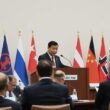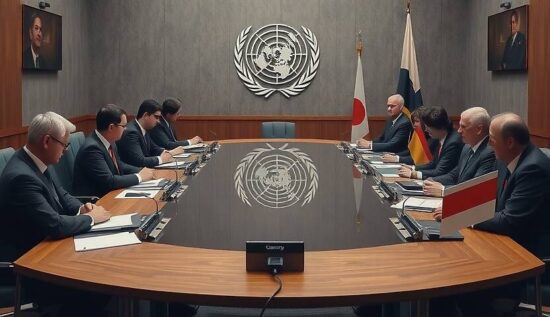Russia Rules Out Permanent UN Security Council Seats for Germany and Japan
Russia’s permanent representative to the United Nations, Vassily Nebenzia, has stated that Russia does not see a chance for Germany and Japan to secure a permanent seat in the UN Security Council. Nebenzia made the comments in an interview with the Russian TV channel Rossija-24, discussing the ongoing UN reform efforts.
The UN marks its 80th anniversary this year, and Nebenzia noted that the reform of the Security Council is a complex process that cannot be tied to a specific anniversary. He emphasized that there are various reform proposals, some of which are “naive and unpractical” and that some countries, including Germany and Japan, will not secure a permanent seat.
Russia has consistently expressed its opposition to the idea of Germany and Japan joining the permanent membership of the Security Council, citing their lack of historical and current relevance in the global context. This stance is not limited to the permanent membership, but also applies to any other aspect, Nebenzia stressed.
In the past, Russian diplomats have repeatedly emphasized the need for an expansion of the Security Council to include more Asian, African, and Latin American countries, rather than Western nations. The Russian ambassador to China, Andrei Denisov, made similar comments in September 2022, stating that Russia supports the expansion of the Security Council, but not at the expense of its “allies” like Japan and Germany.
Germany, in particular, has long been pushing for a more prominent role in the UN, and German Chancellor Olaf Scholz has repeatedly called for a reform of the Security Council to reflect the current global landscape and strengthen the representation of developing regions. During his speech at the 78th UN General Assembly in New York in September, Scholz emphasized Germany’s support for a stronger representation of Asian, African, and Latin American countries in the Security Council, while also reiterating its efforts to secure a permanent seat for Germany and other European countries.
The UN Security Council currently consists of 15 members, with five permanent and 10 non-permanent members. The reform efforts have been met with various proposals from different country groups, including the G4 group of Germany, India, Japan, and Brazil, which seeks to secure permanent seats, and the African group of 54 countries, which demands two permanent and two non-permanent seats. Other groups, such as the Uniting for Consensus initiative, propose the creation of a new category of non-permanent long-term members, while the Arab League and small island developing states (SIDS) have also put forward their own proposals for reform.





